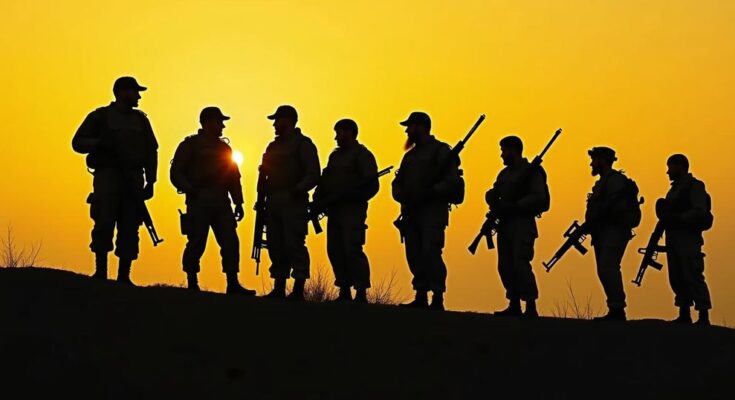The Israeli military executed extensive airstrikes on Hezbollah’s headquarters in Beirut, targeting its leadership and leading to the destruction of multiple residential buildings. Recent attacks have resulted in significant casualties, with claims of over 700 deaths since Monday. Prime Minister Netanyahu has stressed Israel’s commitment to continue operations against Hezbollah without ceasefire, amidst growing international concerns surrounding the humanitarian implications of the conflict.
On Friday, the Israeli military conducted substantial airstrikes targeting Hezbollah’s headquarters in Beirut, catalyzing significant explosions that not only aimed at the militant leader but also resulted in the destruction of several high-rise buildings. An Iranian governmental source indicated that Tehran was attempting to ascertain the whereabouts of Hassan Nasrallah, the head of Hezbollah. This offensive marked the most potent bombardment in the Lebanese capital over the last year, occurring shortly after Israeli Prime Minister Binyamin Netanyahu addressed the UN General Assembly, asserting that Israel would persist in its assaults on Hezbollah until it achieved its objectives. The airstrikes, as reported by Israeli media, potentially involved the use of a US-made “bunker buster” bomb, and the Lebanese National News Agency mentioned that up to eleven bombardments were executed in southern Beirut overnight. Additionally, strikes were reported near the city of Tyre, where the Israeli military claims to have eliminated the commander of Hezbollah’s missile unit, his deputy, and other senior figures within the Iran-supported organization. The ongoing conflict has forced numerous families to evacuate from the suburbs, with some seeking refuge on beaches and others relocating to the center of the capital. According to data from Lebanon’s health ministry, Israeli airstrikes have resulted in the deaths of 92 individuals and injuries to 153 others within a mere 24-hour span. The cumulative toll of fatalities due to the Israeli assaults in Lebanon since Monday has now exceeded 700. In a notable statement at the United Nations, Prime Minister Netanyahu warned Iran of retaliation should it choose to attack Israel, declaring, “If you strike us, we will strike you.” Furthermore, Israel dismissed proposals from international allies advocating for a 21-day ceasefire in Lebanon, reaffirming its commitment to combat Hezbollah militants “until victory”. The White House has expressed discontent regarding Israel’s rejection of the truce proposal, which had been approached with considerable care and effort.
The recent escalation in conflict between Israel and Hezbollah is part of a long-standing and complex geopolitical struggle in the region. Historically, Hezbollah, a Shiite militant group based in Lebanon and backed by Iran, has been a significant actor in resistance against Israeli influence in the Middle East. The Israeli military’s current operations reflect a continuation of its strategy to counter perceived threats from Hezbollah, particularly due to its missile capabilities and involvement in regional conflicts. The humanitarian implications of such military actions and the loss of civilian lives are increasingly attracting international attention and concern.
In summary, the article highlights Israel’s recent military actions against Hezbollah in Beirut, resulting in extensive destruction and significant casualties. Israel remains resolute in its campaign against Hezbollah, as emphasized by Prime Minister Netanyahu’s remarks at the UN. The international community mirrors rising apprehension regarding the conflict’s impact on civilians and the region’s stability, compounded by Iran’s involvement and the ongoing humanitarian crisis in Lebanon.
Original Source: www.france24.com




